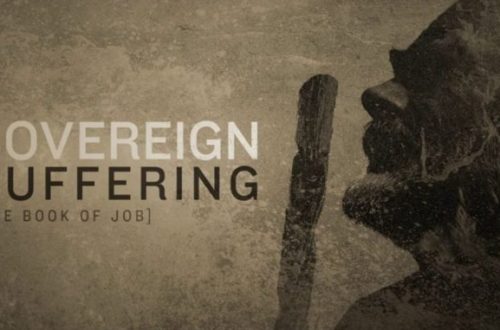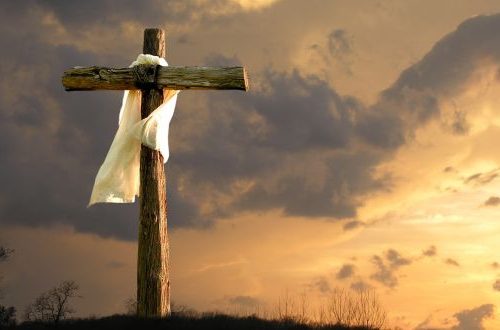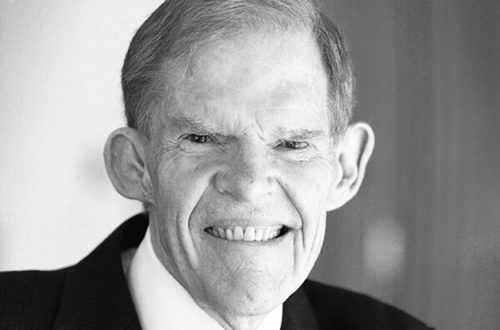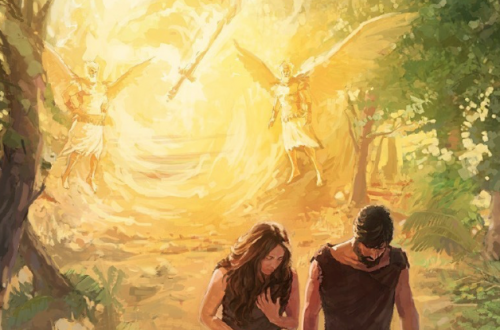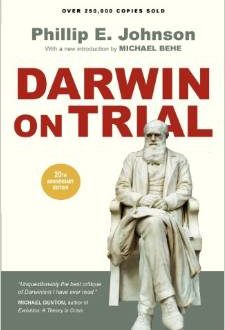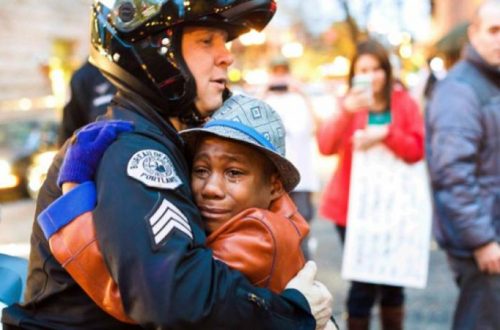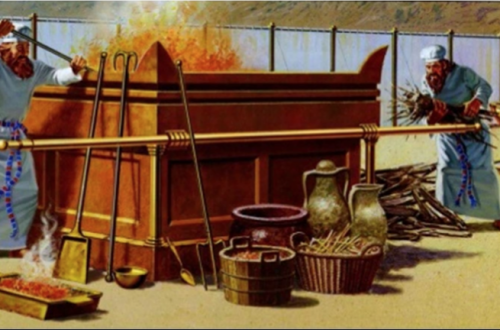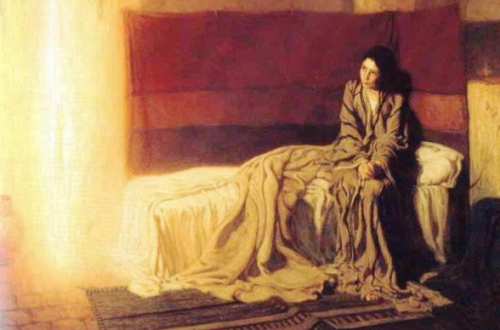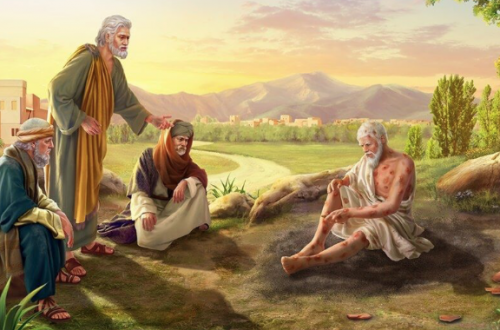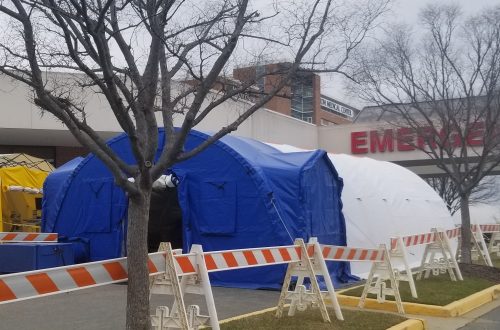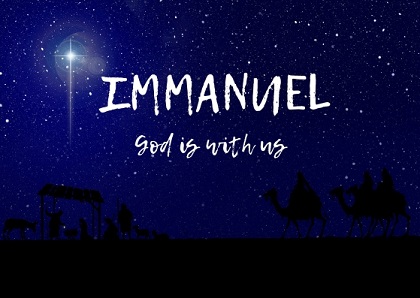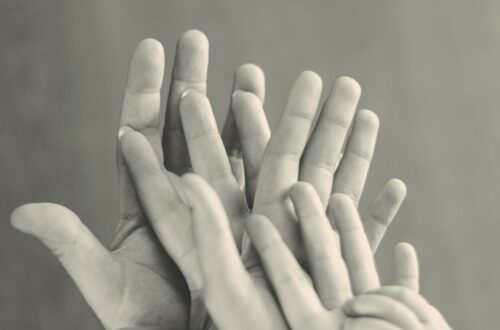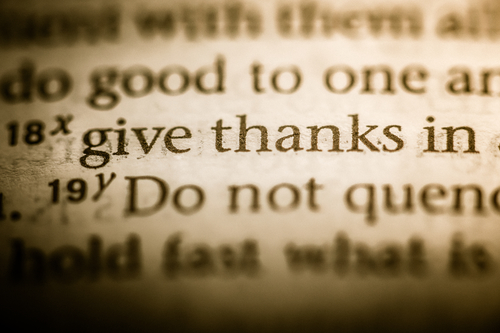-
Taking a stand for what is right
Exodus 1:9–2:10 is part of the lectionary readings for the twelfth Sunday after Pentecost, which is August 23rd. For the sake of brevity, this study primarily focuses on the narrative in chapter 1. Genesis reveals how Joseph was sold into slavery by his jealous brothers. Yet, in time, Joseph rose to prominence in Egypt and became the prime minister. When famine struck Canaan, Joseph’s brothers sought relief in Egypt. While there, they happened upon their long-lost brother and discovered that he was in a position to get them the resources they needed to keep from starving. Joseph forgave his brothers. And since the famine was continuing to worsen, he invited…
-
God’s glorification and vindication of believers
Romans 8:26–39 is part of the lectionary readings for the eighth Sunday after Pentecost, which is July 26th. In 7:1–12, Paul described how sin (personified as a despotic power) used the Mosaic Law to arouse the desire for iniquity within people. When believers trusted in the Son, their relationship to the Law was severed. In turn, this undercut a major way sin exercised its unchallenged authority in their lives. Next, in verses 13–25, the apostle described what life dominated by the sinful nature looked like. He affirmed how easy it was for people to succumb to sin’s control. He also revealed that it was only through faith in the Son…
-
Light and Momentary Troubles
Job loss. Global pandemic. COVID-19 killing thousands. Racial injustices. Knees on necks. Anxiety. Depression. Social distancing loneliness. Sexual harassment. School bullying. It’s just one thing after another. Maybe you wonder if God is even paying attention. We all face discouragement. We try our best, only to be humiliated in front of our coworkers by a toxic boss who leaves us feeling unappreciated and discarded. We toil to make our marriages work, only to feel frustrated because nothing is changing. We give and serve at church, only to have our jaws hit the floor when we learn of members’ gossip and betrayal. It’s a good thing that what God says…
-
Freedom to Do What?
Another celebration of our country’s freedoms will occur in just a few days.[1] The focus is generally on friends, food, and fireworks. Our country’s freedoms somehow seem to get lost in the celebrations each year. This is a sad reality, but an even sadder reality occurs in our everyday life concerning freedoms. I tend to forget these freedoms and spent some time recently reminding myself of them. These freedoms seem to come on the flip side of some things I am naturally bound to do. With the occurrence of COVID-19, I am more aware of my seemingly loss of personal freedoms during 2020. I am naturally bound to want to…
-
Experiencing Peace and Hope with God
Romans 5:1–8 is part of the lectionary readings for the second Sunday after Pentecost, which is June 14th. In 3:21–31, we learn about the Father’s provision of righteousness through faith in the Son (Rom 3:21–31). Paul argued that long before the advent of the Messiah, Abraham and David were justified by faith (4:1–8). The apostle clarified that faith was also the basis for the covenant between God and His chosen people (vv. 9–15). Indeed, God’s promise of grace extended to all Jews and Gentiles, whose faith in the Creator was like that found in Abraham. Though he was exceedingly aged, and Sarah was past childbearing, Abraham still believed God’s promise…
-
Hope Even in Suffering
First Peter 3:13–22 is part of the lectionary readings for the sixth Sunday of Easter, May 17th. In verse 9, the apostle alluded to the fact that his readers were being persecuted for their faith. Then, in 3:13–4:19, he dealt more fully with the issue of suffering as believers. Peter observed that, as a general rule, a devotion to “do what is good” (3:13) should not result in “harm” or punishment. Yet, even if the exception to this rule prevails and undeserved suffering results from doing good, those who belong to the Messiah are “blessed” (v. 14) for being virtuous. One interpretive option is that Peter’s mention of adversity was…
-
Divine Blessings Amid Suffering
First Peter 2:19–25 is part of the lectionary readings for the fourth Sunday of Easter, May 3rd. In this passage, the author encouraged Christians to rejoice, even when they suffered as the Messiah did and for His glory. Peter regarded his readers as pilgrims in the world. “Aliens” (1 Pet. 2:11) refers to permanent resident foreigners in a land. They would have had no legal status or rights where they were sojourning. “Strangers” denotes those who dwelt temporarily in an area. When taken together, these two terms stress the truth that even though believers dwell in the world, they do not belong to it. Because Christians are temporary residents on…
-
Better Than Before
The past few week have changed us. No person, community, or country remains untouched. We’ve stayed inside our home day after day. We’ve grieved over loss—personally and corporately. We’ve feared for our livelihood and wondered how long we can make ends meet. Life won’t be the same following COVID-19. But as we slowly emerge from national and international shutdown, I want to leave better than before, lessons learned, life lived differently. Here are a few things I’m trying to take hold of in this season: Life’s fragility. If there’s anything COVID-19 has confronted and disbanded within us, it’s our sense of invincibility. As we stare at daily rising death…
-
Go, Total Stranger, Go!!
Sometimes encouragement comes from entirely unexpected sources. A few years ago, four friends and I embarked on a mini-adventure, each running a 5ish-mile leg of the White Rock Marathon relay. Mind you, my visions of the day and the reality of the morning were quite different. While training, I enjoyed either sunny skies or the comforts of a temperature-controlled workout room. I didn’t anticipate shivering outside for two hours in less-than-ideal weather conditions. Standing in the pouring rain waiting for that baton, out of my blue lips came these words (said with emphasis): “This is STUPID. Why did I sign up for this??” I had distant hope that I would…
-
Give Thanks In…
At the height of the Civil War, President Abraham Lincoln formally scheduled Thanksgiving for the final Thursday in November. He implored all U.S. Americans to ask God to “commend to his tender care all those who have become widows, orphans, mourners or sufferers in the lamentable civil strife” and to “heal the wounds of the nation” (History of Thanksgiving). With Thanksgiving just 17 days away, families and friends are making preparations for food, festivities, and football. We excel at making external preparations. But are we preparing internally for Thanksgiving? Are our hearts ready to give thanks? With the political intensity of the last several months, it’s easy to forget that…
